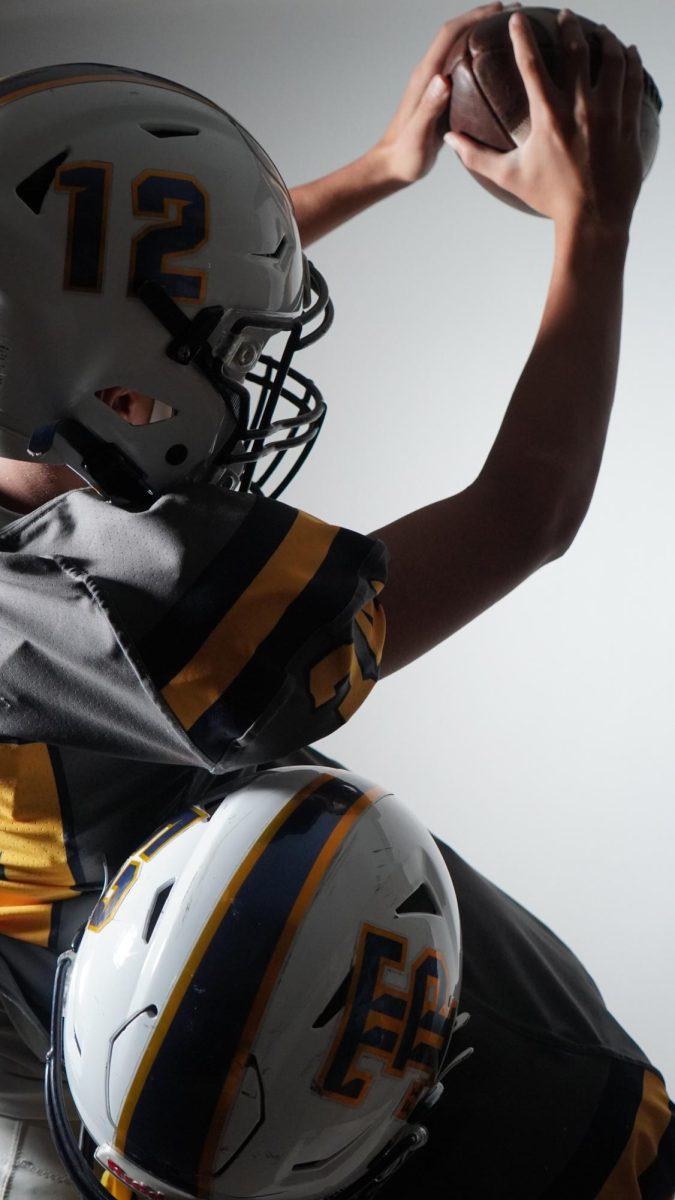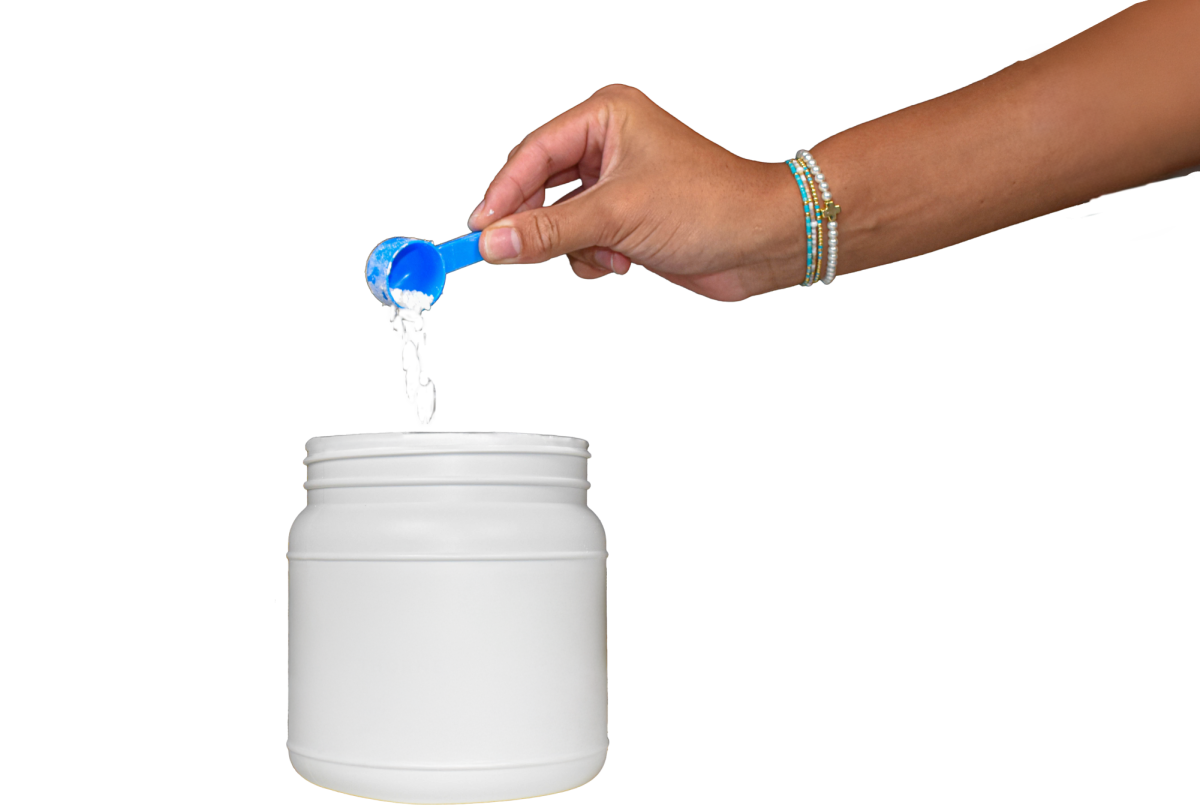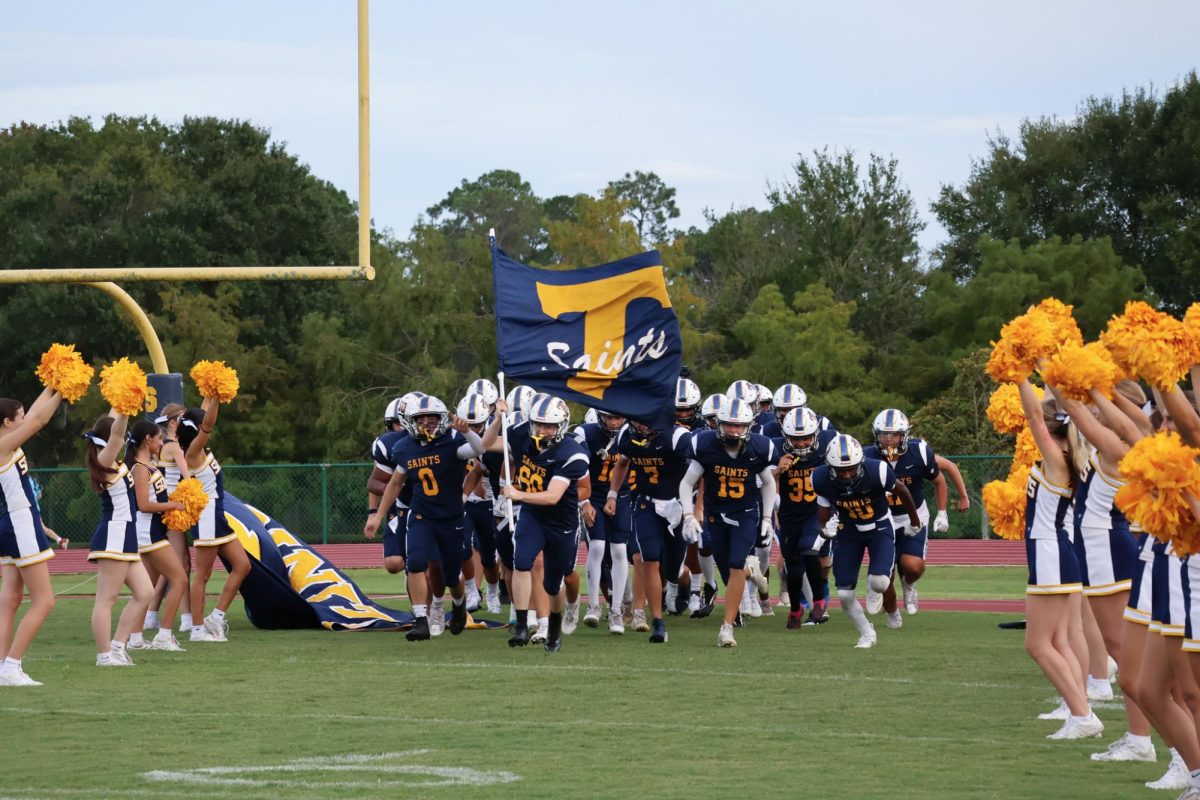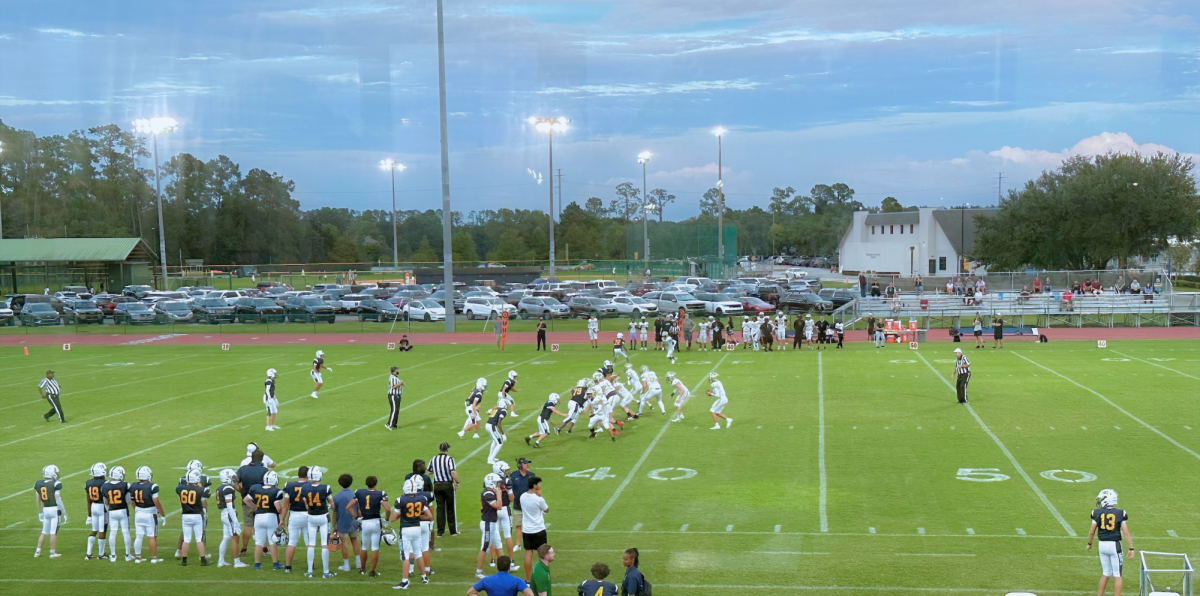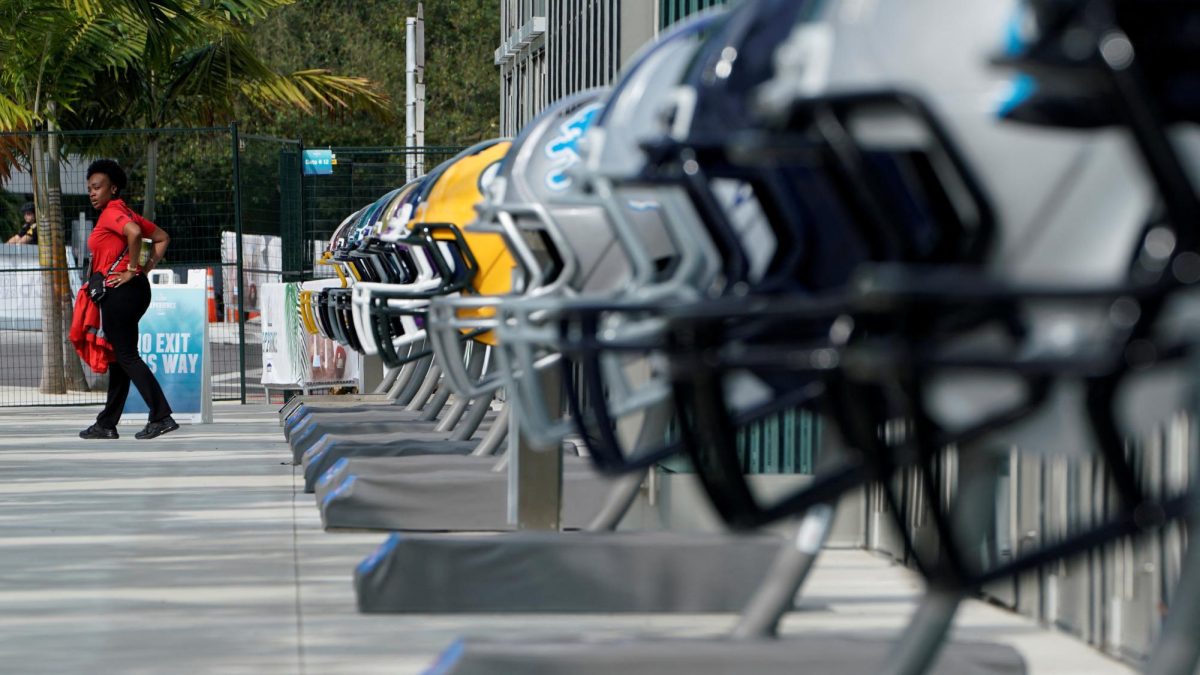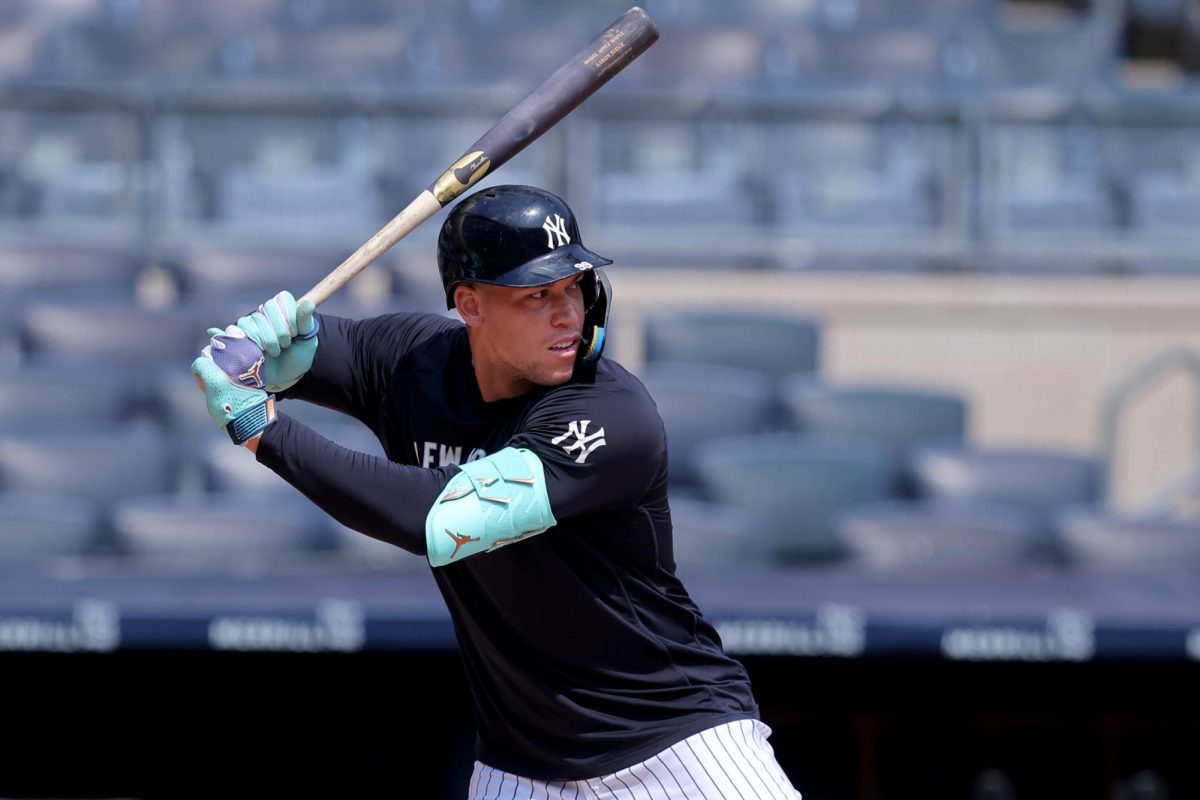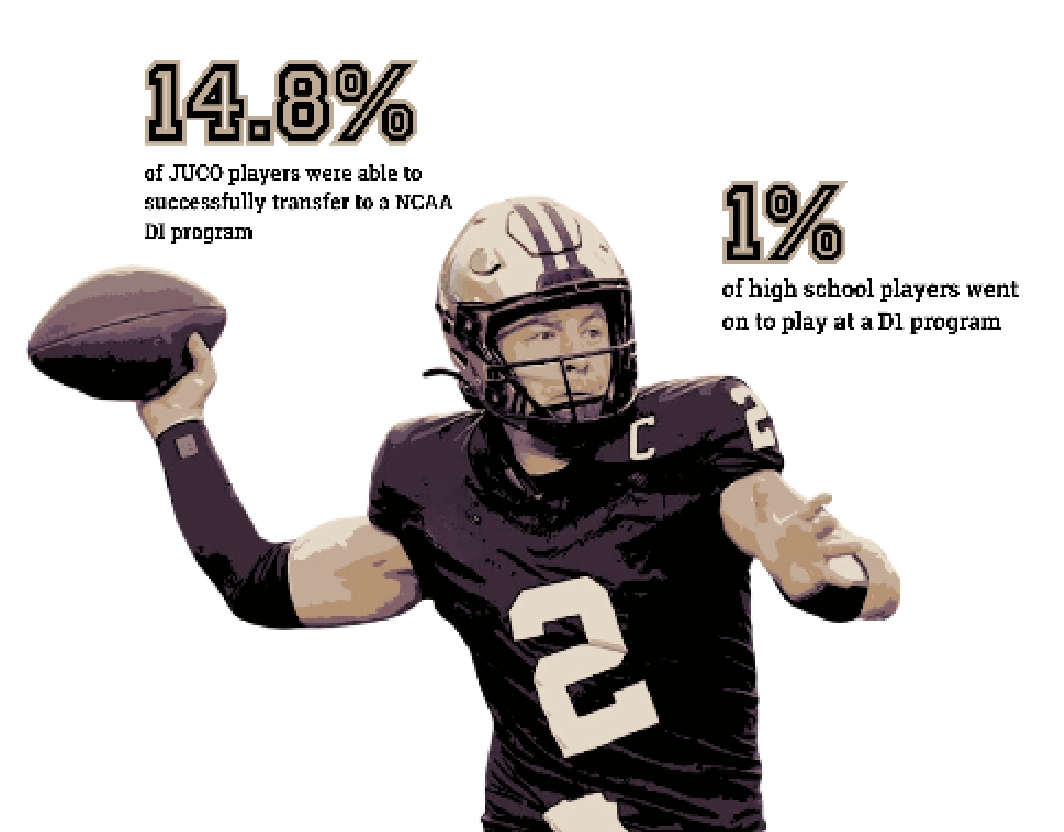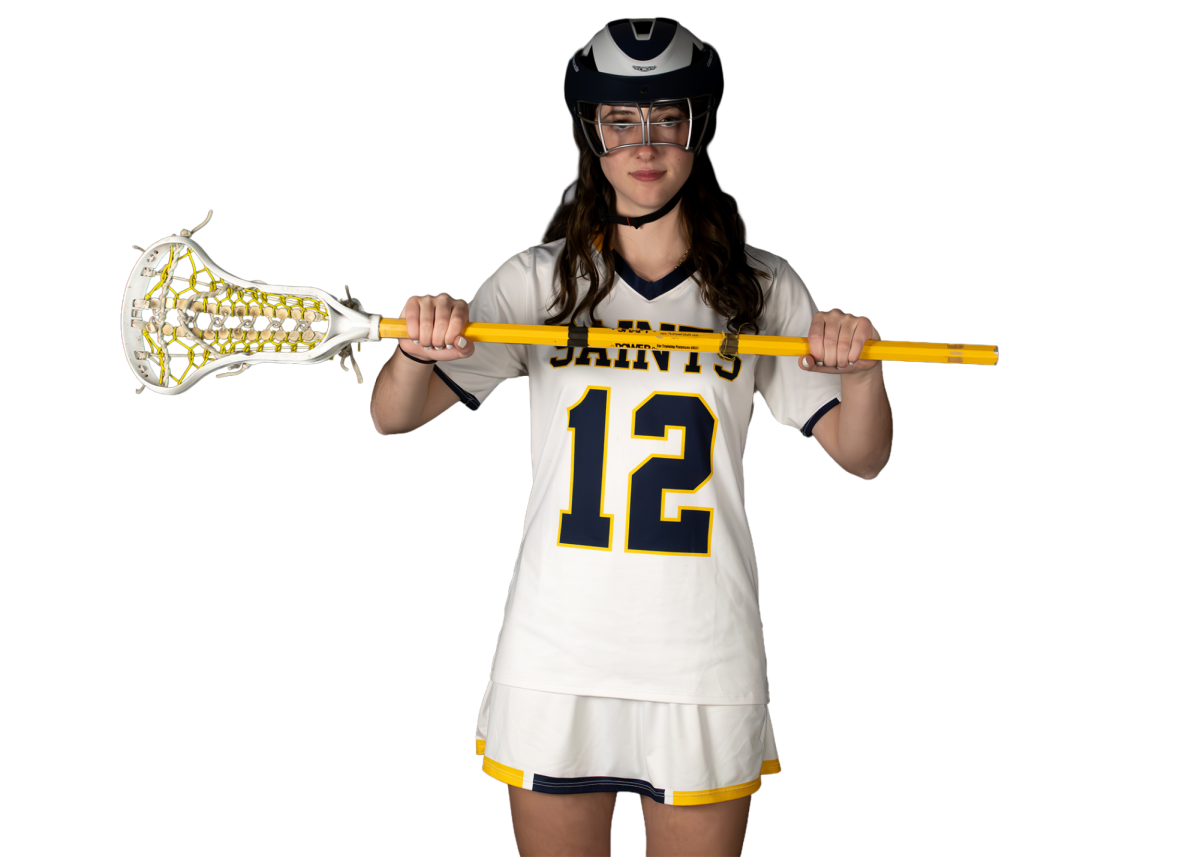Every football fan can relate to the heartbreaking feeling of watching a player endure a season-ending injury. The crack of two helmets hitting each other echoes throughout stadiums around the country. On Sept. 12, star quarterback Tua Tagovailoa suffered his third concussion of his career. Tagovailoa lay on the field unconscious. Later that week, Tagovailoa considered ending his career because of the amount of head trauma he endured.
Tagovailoa’s reoccurring head injuries could have been prevented or had a lesser impact on his health if he was wearing a Guardian Cap, a one-size-fits-all foam helmet cover that weighs only 7 ounces. Guardian Caps are covers designed to reduce the force of head impacts by absorbing shock. According to a study done by Stanford University, the Guardian Caps reduced in-laboratory impact tests by an average of 25% at a contact/impact speed of 3.5 meters per second.
This is the first year that Trinity has made these shields available for the varsity football players, offering Guardian Caps for up to 15
players. The program will buy more depending on the demand for them from the team. They are not a requirement for players in games or practices this year because they arrived two weeks into the season.
Nurse Kelly White believes Guardian Caps are a valuable addition to safety equipment, highlighting their potential reduction of head injuries.
“I would hope to see the vast majority of players wearing these to reduce the amount of concussions,” White said. “ They would be a wonderful addition to safety equipment.”
Despite the NFL’s push to amplify player safety, most professional football players have expressed hesitation in wearing
Guardian Caps during games this year due to their weight and the way they alter balance. This attitude towards the helmet padding has been echoed by football team members where very few players wear the caps during practices and games. Captain Carson Wicker explains why players have declined the option to wear them.
“Some players don’t think it protects their head from the bigger hits that are seen in football,” Wicker said.
Though the Guardian Caps were originally made in 2010, the design’s technology is still evolving. This year in the NFL, they were
required for off-season training. Although Guardian Caps were allowed by the National Federation of High School Associations to be employed in high school football programs since 2015, Trinity introduced these caps after the NFL required them for the first part of off-season training this year.
“The [Guardian] Caps are not widely known about,” White said. “It’s something new.”
Trinity tries to keep helmets as new as possible, as they play an important role in maintaining the safety of our players. While helmets and Guardian Caps keep players safe, there are alternatives to promote athletes’ protection.
According to Rutgers University, using Guardian Caps, along with safe tackling techniques produces fewer head injuries. As a result of the many statistics supporting new safety measures, Head Football Coach Brian Kells is teaching the players safe tackling techniques along with teaching the players how to fall safely.
“We teach the most updated tackling techniques you can teach,” Kells said. “Something we worked on this year is teaching the kids how to fall. We try to make it a safe environment for our players.”
Using the latest statistics from the NFL, college and high school games and practices, Kellsis preparing a resolution for player safety. He plans to mandate Guardian Caps for all players as soon as Trinity receives enough covers for the entire team.
“We will make them mandatory for practice,” Kells said. “I would like [the players] to wear them during games.”





